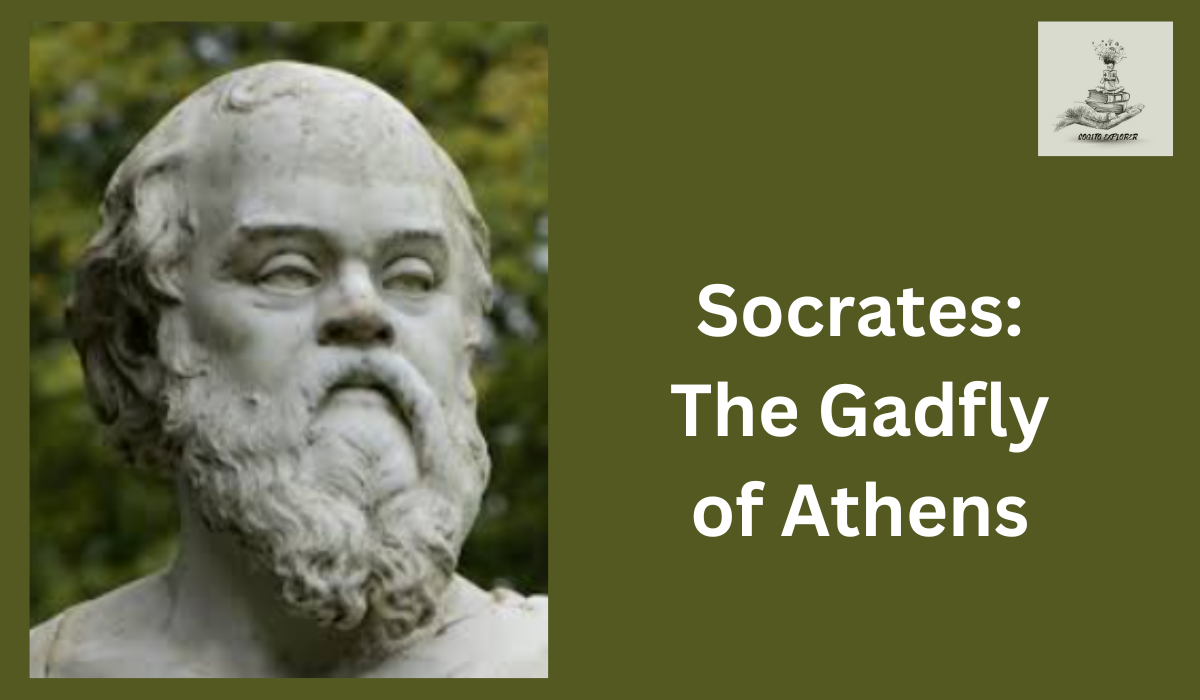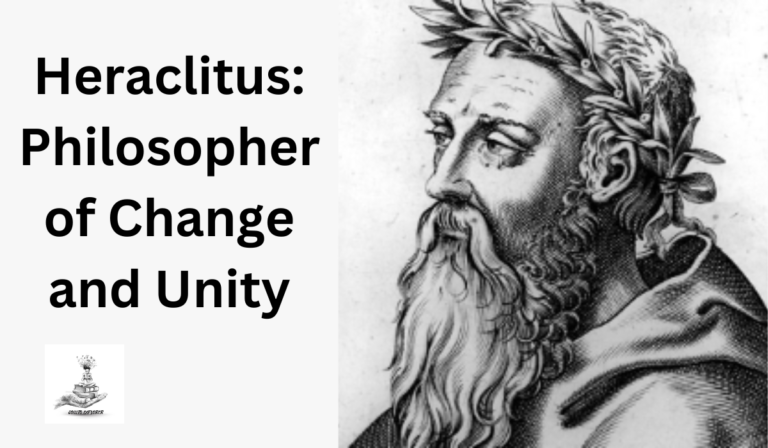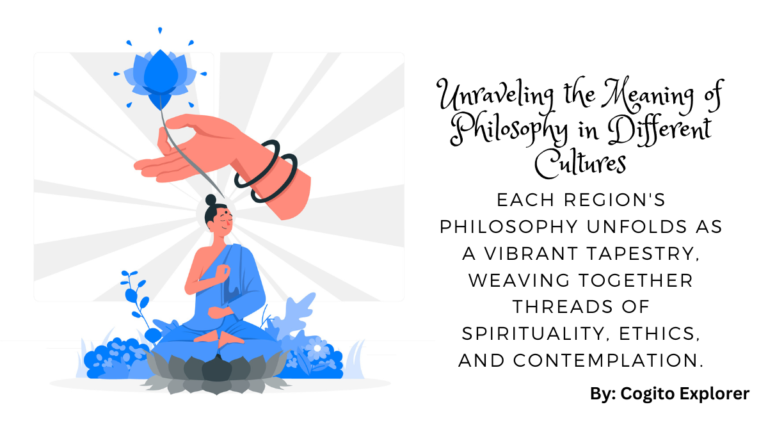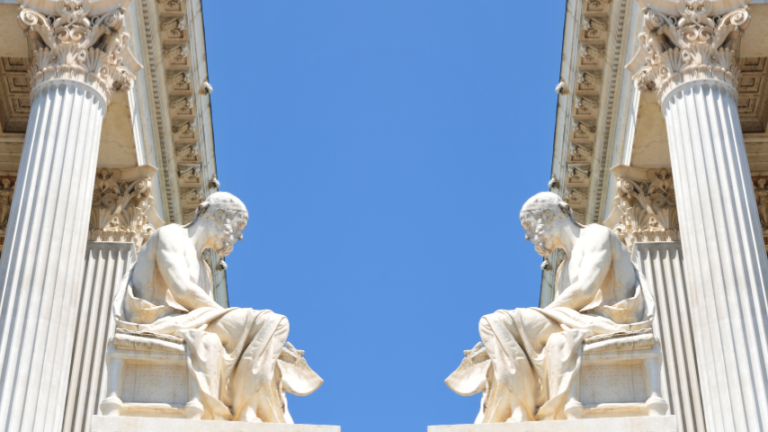Socrates: The Gadfly of Athens
Socrates was an ancient Greek philosopher born in Athens around 470 BCE and is considered one of the founders of Western philosophy. He is best known for his method of questioning, now called the Socratic method, which involves engaging in dialogue with others to stimulate critical thinking and uncover deeper truths. His philosophy centered on the pursuit of wisdom, self-examination, and the importance of virtue. He believed that true knowledge comes from recognizing one’s ignorance and engaging in questioning and critical thinking.

Socrates did not write any of his teachings down; instead, his ideas and philosophy were recorded by his students, primarily Plato, through dialogues. Plato’s dialogues, such as”Apology,” “Crito,” “Phaedo,” and others, provide insight into Socrates’ life, philosophy, and death. Today we will be discussing his teachings, inspirations, and influences on the contemporary and modern world.
Inspirations from the Wise
Socrates, through his Philosophy of inquiry, seemed influenced by Sophists who were ancient Greek teachers of rhetoric and philosophy known for their expertise in persuasive speaking and the art of argumentation. The term comes from the Greek word ‘sophistes’, which means wise or skilled. They didn’t adhere to a specific philosophical school but rather focused on teaching practical skills such as public speaking, debate, and the ability to argue effectively. The sophists were active from the 5th to the 4th century BCE, a time marked by intellectual and cultural ferment. They played a significant role in the education of the youth in ancient Greece, offering instruction in subjects like ethics, politics, and epistemology.
Notable sophists include Protagoras, Gorgias, and Prodicus. However, the term later acquired a somewhat negative connotation, with some critics accusing them of relativism and deceitful argumentation. The Trial of Socrates is a testament to this theory and signifies how the elite and intellectual class (holding power) saw the Sophists.
The Trial: For Societal Status Quo
Socrates’ relentless questioning and challenging of Athenian society, particularly its political and religious authorities, led to his trial and eventual execution in 399 BCE. He was charged with impiety and corrupting the youth of Athens, accusations stemming from his unconventional beliefs and teachings. During his trial, Socrates delivered a defense speech known as the “Apology,” where he defended his philosophical inquiries and maintained his innocence. Despite this, Socrates was found guilty by the Athenian jury and sentenced to death by drinking poison hemlock.
In his final moments, as depicted in Plato’s dialogue “Phaedo“, Socrates remained steadfast in his philosophical convictions, discussing topics such as the immortality of the soul and the pursuit of knowledge. He viewed death as either an eternal sleep or a journey to the afterlife, remaining calm and resolute until the end.
The trial of Socrates remains a unique case in Athenian history. While Athenians cherished their democratic principles, they were also wary of dissent and deviation from societal norms. The trial and execution of Socrates sparked debates about the nature of justice, the role of the individual in society, and the limits of governmental authority. The legacy of Socrates’s trial endures as a reminder of the complexities inherent in democratic governance and the enduring value of free expression in society.
Influences: A Guiding Light
Socrates’ legacy continued to flourish through the works of his students, particularly Plato and Xenophon, who wrote extensively about his teachings and life. Plato, in particular, became one of the most significant philosophers in his own right, using Socrates as a central character in many of his dialogues to explore various philosophical concepts. His “Apology of Socrates” is a famous account of Socrates’ trial, advocating for a life of examination and criticizing Athenian democracy. Plato’s writings not only preserved Socrates’ ideas but also expanded upon them, delving into metaphysics, epistemology, ethics, and political philosophy. Through Plato’s dialogues, Socrates became an enduring symbol of intellectual inquiry and moral integrity.
Socrates’ method of questioning, which aimed to uncover underlying assumptions and encourage critical thinking, became a cornerstone of philosophical inquiry. His thoughts inspired subsequent generations of philosophers, writers, and thinkers to question prevailing beliefs and examine fundamental truths. It influenced subsequent philosophical schools, including the Stoics and the Skeptics, who valued the examination of beliefs and the pursuit of wisdom. In addition to his philosophical contributions, Socrates’ life and death serve as powerful symbols of intellectual courage and integrity. His willingness to challenge authority and defend his principles, even at the cost of his own life, inspires admiration and reverence across generations.
In literature and art, Socrates’ life and philosophy have been celebrated and interpreted in various ways, contributing to his enduring cultural significance. From Renaissance paintings to modern adaptations in literature and film, Socrates’ story continues to captivate and inspire audiences worldwide.
Influence beyond Philosophy
Socrates’ enduring influence also extends to the realm of ethics and moral philosophy. The Socratic notion that true wisdom comes from recognizing one’s ignorance has profound implications for ethical inquiry. Socrates’ ethical teachings challenge individuals to reflect on the nature of goodness, justice, and the ideal life. His emphasis on the pursuit of virtue as the highest good encourages individuals to prioritize moral excellence and integrity in their actions and decisions.
Furthermore, Socrates’ belief in the unity of virtue— the idea that all virtues are interconnected and mutually reinforcing— has shaped ethical theories throughout history. Philosophers such as Aristotle and the Stoics built upon this idea emphasizes the cultivation of virtuous character as essential to living a flourishing life.
In contemporary ethics, Socratic principles continue to inform debates about moral responsibility, moral reasoning, and the foundations of ethical theory. The Socratic method, with its emphasis on dialogue and critical inquiry, remains a valuable tool for personal development, character education, ethical deliberation, and moral education.
The Socratic Ways
Socrates’ emphasis on moral integrity and intellectual honesty. The Socratic method, characterized by its rigorous questioning and dialectical exchange, became a foundational tool not only in philosophy but also in fields such as education, law, and psychology. The method’s emphasis on critical thinking and open dialogue continues to shape pedagogical approaches and intellectual discourse in modern society.
Socrates’ philosophy centered on the pursuit of knowledge and virtue. He believed that true understanding of concepts like courage and justice was essential for leading a fulfilling life. According to him, virtue was not just a set of separate qualities but a unified ideal to be pursued through intellectual inquiry and self-reflection.
Furthermore, Socrates’ commitment to living a virtuous life and seeking self-knowledge served as a model for ethical conduct and personal growth. His teachings on the importance of moral introspection and ethical behavior remain relevant in contemporary discussions about character development and moral philosophy.
Personality and the Ironic Approach
Socrates was not born into wealth or nobility. Physically too, Socrates was unconventional, with a snub nose and bulging eyes. Despite his unremarkable origins and appearance, he attracted admiration from many influential Athenians. He possessed an unwavering commitment to reason as the guiding principle of life, believing that through thoughtful examination, one could achieve mastery over emotions and actions.
One of the most intriguing aspects of Socrates’ personality was his use of irony, a rhetorical device where words convey meanings opposite to their literal interpretation. While modern irony often aims for humor or wit, ancient Greek irony (eirôneia) was more about dissembling or hiding one’s true intentions. Socrates’ ironic demeanor often puzzled his interlocutors and readers alike, leading to misunderstandings and suspicions about his true beliefs and motives. Even during his trial, where he faced charges of corrupting the youth and impiety, Socrates’ ironic tone permeated his defense. His admission of being swayed by his accusers’ persuasive speeches exemplifies the enigmatic nature of his communication style. Socrates was often ridiculed in plays, notably in “The Clouds” by Aristophanes, which portrayed him as representing trends like the study of language and nature, along with atheism.
Despite the uncertainties surrounding his persona, Socrates’ legacy endures as a symbol of intellectual courage and moral inquiry. His unwavering pursuit of truth, coupled with his willingness to challenge societal norms and conventions, continues to inspire generations of thinkers and philosophers.
The Impact and the Legacy
Despite his lack of written works, Socrates’ impact on Western philosophy is profound. His emphasis on the importance of self-examination, ethical living, and the pursuit of knowledge continues to resonate with philosophers, scholars, and individuals seeking a deeper understanding of the world and themselves. Socrates’ legacy endures through his profound influence on Western philosophy and his commitment to questioning assumptions, seeking truth, and living a virtuous life. He remains an iconic figure whose teachings continue to inspire philosophical inquiry and critical thinking to this day. Overall, Socrates stands as a towering figure in the history of philosophy, whose teachings and examples continue to shape the way we think about truth, virtue, and the pursuit of wisdom.







